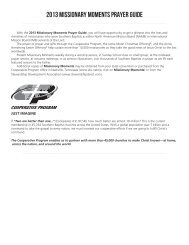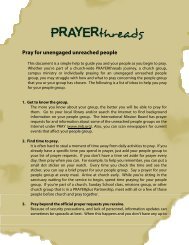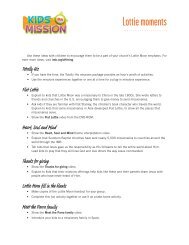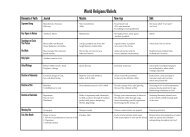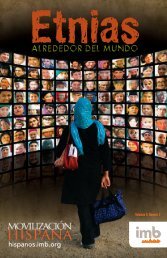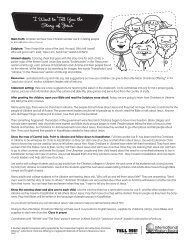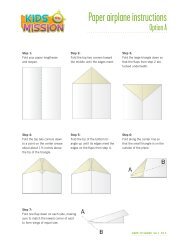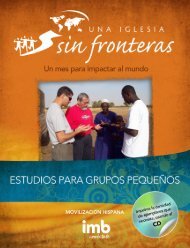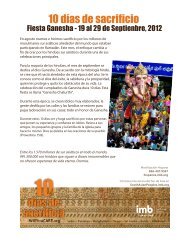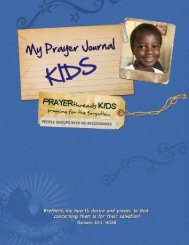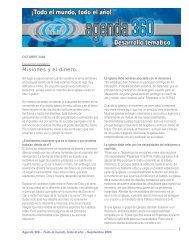THE WAYS PEOPLE LEARN By Dr. James B. Slack Exploring the ...
THE WAYS PEOPLE LEARN By Dr. James B. Slack Exploring the ...
THE WAYS PEOPLE LEARN By Dr. James B. Slack Exploring the ...
Create successful ePaper yourself
Turn your PDF publications into a flip-book with our unique Google optimized e-Paper software.
The Ways People Learn--<strong>Slack</strong> 4who completed ten years of school or secured a high school diploma but did not spend alot of time in developing reading and writing skills, almost always test out to be semiliterate.Semi-literates learn best and most comfortably by means of oral communicationstyle presentations ra<strong>the</strong>r than through literate style presentations. However, most aredeveloping competencies that move <strong>the</strong>m in <strong>the</strong> direction of full literacy. Even so, all ofthose in this category, and most of those in <strong>the</strong> functional illiteracy category wouldbe classified by every school system and every country as literate, when in realitymost prefer and can best handle oral communication learning styles. This is one of<strong>the</strong> many reasons why most published literacy percentages cannot be trusted and used.The published percentages are as much driven by incorrect definitions of literacy;financial lending agency criteria for country loans and aid; and by "saving face" reasonsThe fourth category is literate. Some countries and some of those who work in literacyeducation refer to this category as functional literacy. This is not to be confused with aprevious category of functional illiteracy which is just <strong>the</strong> opposite. Literates are usuallythose individuals who have continued to exercise <strong>the</strong>ir ability to read and write up to andbeyond <strong>the</strong> equivalent of ten grades of school. They have not only gone through <strong>the</strong>grades in school, but have in fact attained <strong>the</strong> competencies equivalent to those grades.They are literate learners. Information such as ideas, precepts, concepts, and principlesare easily understood and handled by <strong>the</strong>m through literate means. Functional literacy is aterm that has been chosen to describe literacy in a way that is not dependent upon <strong>the</strong>number of years in school. 3 A gifted and/or applied learner, usually a self-starter andhighly motivated person, could become functionally literate after only a few years ofstudy, whe<strong>the</strong>r in or out of school. It would also be true that some could study wellbeyond twelve years and not be functionally literate.The average literate person, on <strong>the</strong> way to becoming literate, has lost or given up ameasure of his or her oral communication skills. Like physical body parts, oral skillstend to atrophy if not used regularly. Numerous academic studies in <strong>the</strong> fields ofeducation, psychology and anthropology have been conducted relative to this issue.Atrophy of oral skills is <strong>the</strong> price of becoming literate. The literate’s memory has becomeless and less dependent upon recalling what has been heard orally, and has progressivelybecome dependent upon recorded notes and information contained in books and o<strong>the</strong>rrepositories. These individuals are no longer classified as oral communicators. This doesnot mean that <strong>the</strong>y do not appreciate oral communication or that <strong>the</strong>y will not respond tooral communication. It only means that <strong>the</strong>y are less characterized by orality than byliteracy. A few do carry significant oral skills with <strong>the</strong>m into functional literacy.The fifth, and final category is highly literate. A highly literate person has usuallyspent time daily developing and using reading and writing skills at a very advanced level.Such individuals have usually attended college and are often professionals in liberal artfields. They are thoroughly word-culture individuals. Like literate level individuals, <strong>the</strong>yare no longer predominately oral communicators, but are literate communicators. Theyhave, through education, moved progressively from being an oral communicator to a3 Ibid.



